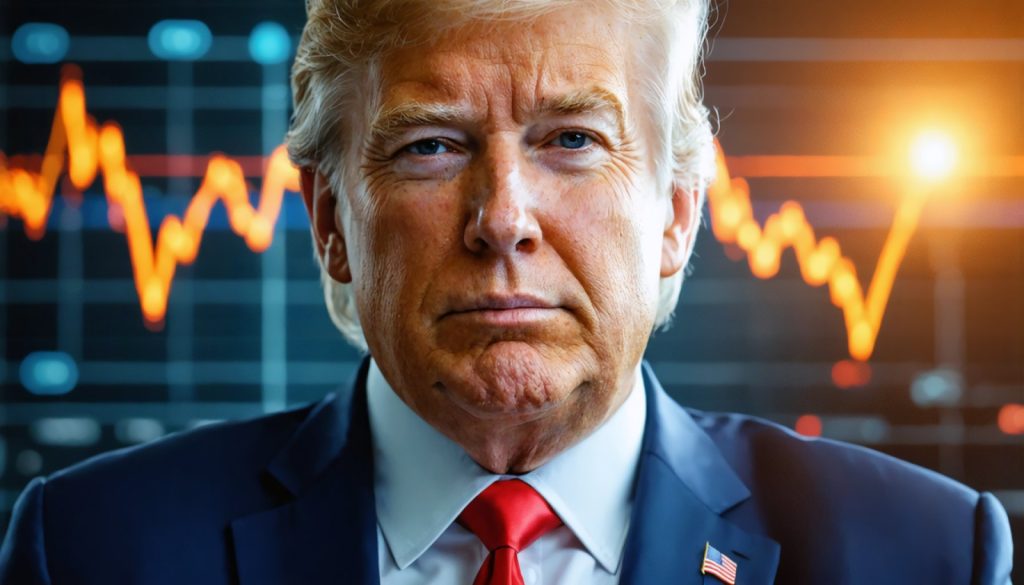
- The Republican Party secured significant electoral wins in Florida, with GOP candidates Jimmy Patronis and Randy Fine emerging victorious.
- The burgeoning cryptocurrency sector played a pivotal role in these victories, heavily supported by the Defend American Jobs PAC under the Fairshake network.
- Randy Fine won the 6th District with 56.7% of the vote, while Jimmy Patronis claimed the 1st District with a 57% vote share.
- Financial dynamics revealed Democratic contender Josh Weil managed strong inroads despite limited campaign resources.
- Fairshake’s influence is growing, having raised $116 million to shape future elections and advance crypto legislation.
- These electoral outcomes enhance the GOP’s position to influence future digital asset legislation, potentially leading to U.S. leadership in cryptocurrency.
- Key industry players like Coinbase, Ripple, and Andreessen Horowitz are backing this legislative shift.
Under the vibrant Florida sun, the political landscape on Tuesday night shifted subtly yet significantly, as the Republican Party fortified its hold on power through two critical electoral victories. GOP candidates Jimmy Patronis and Randy Fine emerged triumphant in Florida’s special congressional elections, each securing a seat in a competition heavily influenced by a surge of support from the burgeoning cryptocurrency sector.
In the storied 6th District, punctuated by the hum of grassroots enthusiasm and the quiet intensity of political titans, Randy Fine bested his opponent, Democrat Josh Weil, with 56.7% of the vote. Meanwhile, Jimmy Patronis clinched his triumph in the 1st District, where his 57% vote share outpaced Gay Valimont. These victories, while impressive, illustrate more than mere numbers—they underscore a strategic play by the GOP to harness the power of the cryptocurrency industry.
The mastermind behind this coup? The Defend American Jobs PAC, a forceful player in the burgeoning field of cryptocurrency political action committees. This PAC, under the umbrella of the influential Fairshake network, has emerged as a pivotal figure in shaping the future of American digital finance. Defend American Jobs lobbied hard for Patronis and Fine, driven by a vision of American leadership in crypto and digital assets. Their victories now symbolize a triumph for innovation, economic growth, and the quest for global digital leadership.
Although Fine’s win was narrower than the Republican stronghold margin seen in previous elections, the financial dynamics of the race highlight a fascinating narrative. Backed by nearly $10 million, Weil managed to make significant inroads against Fine’s more modest campaign, which operated on a $1 million budget. Such financial variables reveal the potent influence of targeted funding and strategic endorsements.
Fairshake’s financial prowess is anything but modest. In the past year alone, it raised an astounding $116 million, with plans aimed squarely at shaping the 2026 midterms. Since the dawn of the 2024 electoral season, a staggering $133 million has bolstered the Republican cause, tightening its grip on the legislative framework crucial for the crypto sector’s future.
As Congress contemplates groundbreaking legislation concerning stablecoins and market structures, the political leverage gained through these elections cannot be overstated. The GOP’s strengthened position paves the way for potentially transformative crypto legislation, setting the stage for future American dominance in the digital asset arena.
In the corridors of power, where the fate of financial innovation hangs in the balance, key industry leaders from Coinbase to Ripple and venture capital giants like Andreessen Horowitz have aligned their formidable resources with Fairshake. Their unified push may just be the catalyst needed to accelerate an American renaissance in the realm of cryptocurrency.
In essence, the victories of Patronis and Fine do not just represent electoral success; they signify a forward-leaning approach to technology and legislation. As the digital revolution gains momentum, these wins suggest that the United States is poised to lead this charge, armed with a robust legislative coalition backing the ever-expanding world of digital assets.
Florida’s Political Shift: How Cryptocurrency Is Shaping the Future
The recent electoral victories by Republican candidates Jimmy Patronis and Randy Fine in Florida’s special congressional elections are significant not only for their political impact but also for highlighting the growing influence of the cryptocurrency sector in American politics. Here’s a more in-depth look at the emerging landscape of crypto’s impact on political dynamics, including practical applications and future projections.
Exploring the Crypto-Political Nexus
1. Impact of Cryptocurrency Contributions
– The substantial involvement of the Defend American Jobs PAC underscores the financial muscle that cryptocurrency sectors can flex in political realms. This illustrates an emerging trend where digital finance industries increasingly influence legislative outcomes.
– With $116 million raised in the past year alone, largely buoyed by contributions from major players like Fairshake, the PAC exemplifies how concentrated fiscal strategy can effect significant political change.
2. The Role of Legislation
– As the GOP strengthens its influence, the horizon appears promising for new legislation aimed at regulating elements of the digital asset world. Expected bills could cover stablecoins and broader market structure reforms, potentially setting a global standard.
How To: Understanding and Engaging in Crypto Legislation
– Stay Informed: Follow legislative activities and stay updated on key developments from reliable sources such as CoinDesk or The Block.
– Engage With Policy: Engage in dialogues with local representatives to voice support for or opposition against forthcoming regulations.
Real-World Use Cases: Crypto’s Influence Beyond Borders
– Innovation Hubs: With growing political support, the US may establish itself as a more prominent innovation hub for blockchain technologies, attracting startups and investors worldwide.
– Economic Contributions: Cryptocurrencies could offer new streams of revenue and economic activities, ultimately boosting local economies in the regions embracing them.
Market Forecasts & Industry Trends
– Increased Adoption: As regulatory clarity improves, anticipate increased institutional adoption of cryptocurrencies.
– Global Leadership: With proactive legislation, the US might challenge current crypto-leaders like Singapore and Switzerland, seeking dominance in the field.
Controversies and Limitations
– Regulatory Risks: While potential exists for robust legislation, there remains a risk of over-regulation stifling innovation.
– Volatility Concerns: The intrinsic volatility of cryptocurrencies remains a concern for many investors and lawmakers alike.
Insights & Predictions
– Bipartisan Cooperation: Expect new alliances as both Republican and Democratic leaders explore common ground on crypto-regulation initiatives.
– Technological Integration: Digital assets could become integral in various governmental functions, from voting to identity management.
Actionable Recommendations
– Keep Your Portfolio Diverse: While investing in digital assets, maintain a diversified portfolio to mitigate risks.
– Educate Yourself: Knowledge is power. Use resources like Khan Academy for comprehensive insights into how blockchain technology works.
Conclusion
The political undercurrents in Florida reflect a larger trend of digital finance influencing policy and governance. As legislative landscapes evolve, stakeholders in cryptocurrency and blockchain technology must remain adaptive and engaged to capitalize on these shifts. Looking forward, proactive participation and advocacy can ensure that emerging policies foster innovation while protecting economic interests.
For further insights and updates, stay tuned to authoritative platforms that cover financial markets and technology advances.



